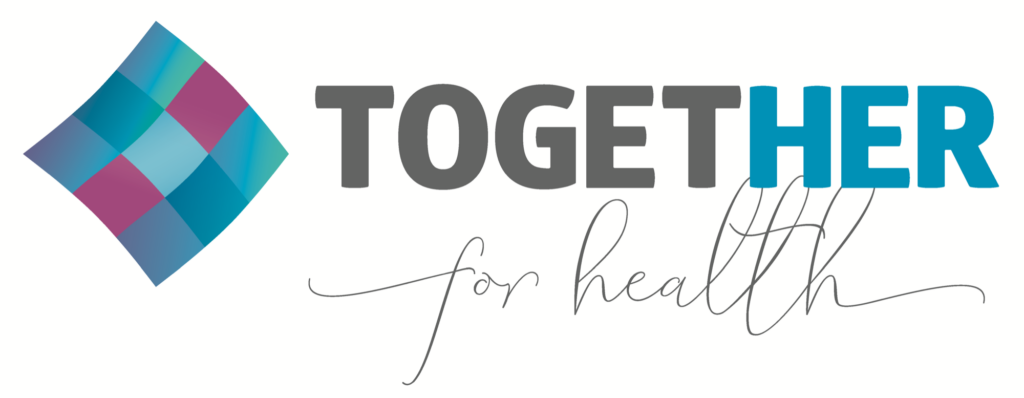Announcing the Recipients of TogetHER’s 2021-2022 Cervical Cancer Grants Program
16 December, 2021
The world has the means to prevent – and actually eliminate – cervical cancer forever. Effective vaccines that prevent cervical cancer-causing strains of the human papillomavirus (HPV) have been in wide circulation for over a decade, and methods for the screening and treatment of cervical precancer are affordable, scalable, and increasingly more accurate and less invasive.
Unfortunately for many women in low-resource settings, access to these lifesaving interventions remains a significant – and life-threatening – challenge. Over 600,000 women were diagnosed with cervical cancer in 2020, and almost 342,000 women needlessly lost their lives to the disease. Catalytic investments are needed to trigger systemic improvements — policy changes, regulatory approvals, and the development of innovative new tools and strategies — that can enhance access to cervical cancer prevention and set communities on a sustainable path to elimination.
TogetHER for Health is making its own contribution to address this critical need. We are thrilled to announce four new recipients under our 2021-2022 Cervical Cancer Grants Program, providing small, highly targeted grants that address demand and supply barriers to cervical cancer prevention services in low- or middle-income countries (LMICs). Learn more about our recipients and their successful submissions below:

BIO Ventures for Global Health (BVGH) is a Seattle-based results-oriented nonprofit organization. Through the African Access Initiative (AAI), BVGH works with hospital administrators, oncologists, and pathologists to conduct detailed assessments of the hospitals’ current cancer treatment and research capabilities. Data from these assessments include each hospital’s cancer priorities, standards of care, barriers to treatment, existing laboratory capacity, and more. Using this data-based approach, BVGH is partnering with the Rwandan Biomedical Centre (RBC) to develop a customized plan to address priority needs at hospitals that align with Rwanda’s national priorities and strategies to deliver high quality cancer care.
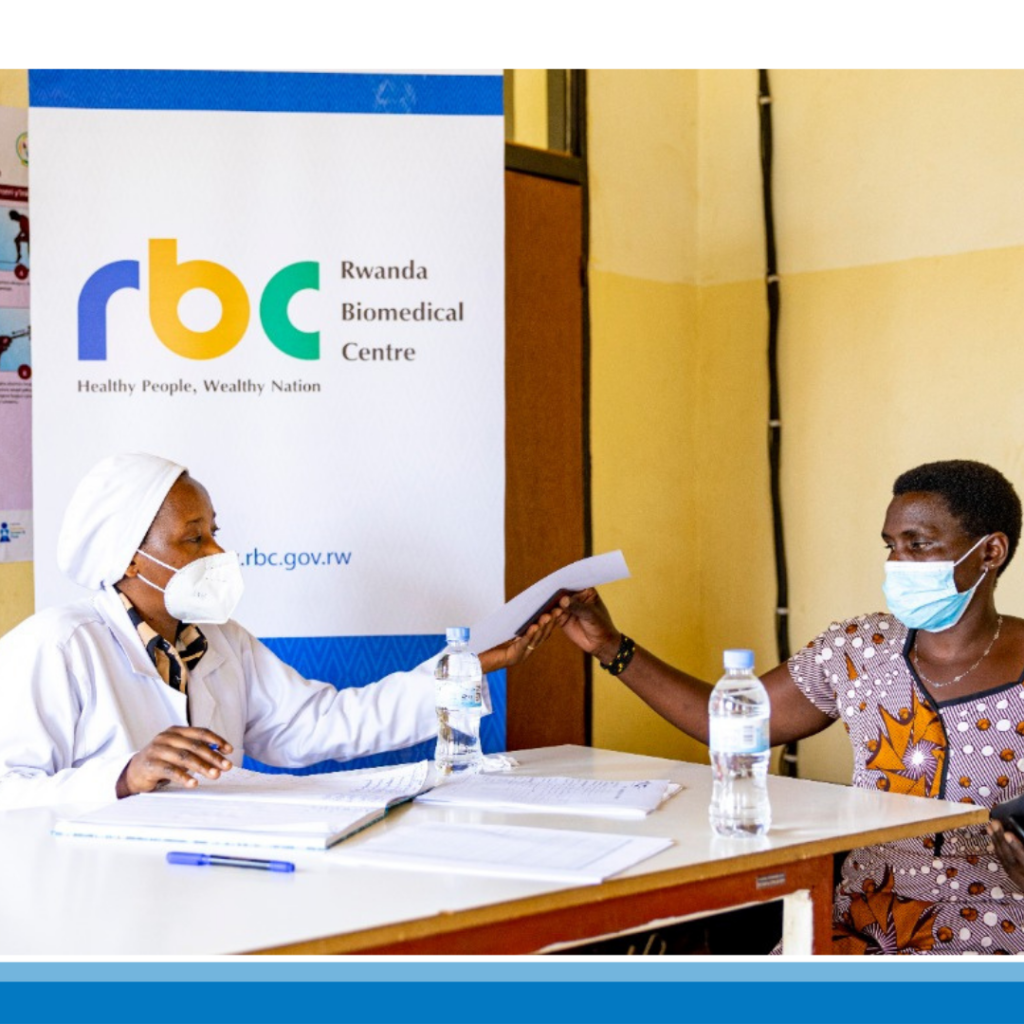
By training providers to incorporate the SEVIA (smartphone-enhanced VIA) tool into their services, healthcare providers will be able to improve existing cervical cancer screening services within Rwanda and offer a model for improved visual screening internationally.
Photo credit: BIO Ventures for Global Health

East Africa has among the highest rates of cervical cancer worldwide. With funding from TogetHER’s Cervical Cancer Grants Program, BVGH will partner with the RBC and researchers at Queen’s University (Ontario, Canada) to integrate a smartphone-based tool called SEVIA (smartphone-enhanced VIA) to improve the quality and accuracy of visual cervical cancer screening currently being offered in Rwanda’s Bugesera District. This work aligns with the Rwandan Ministry of Health’s strategic priorities and research interests and will be led by local health providers at the Nyamata District Hospital. By training providers to incorporate the SEVIA tool into their services, healthcare providers will be able to improve existing cervical cancer screening services within Rwanda and offer a model for improved visual screening internationally.
The Cameroon Baptist Convention Health Services (CBCHS) is a large, faith-based healthcare organization with a network of 94 health facilities located in nine of the ten Regions of Cameroon. Since 2007, CBCHS has operated a Women’s Health Program (WHP), a comprehensive women’s reproductive health program built around four components: cervical cancer prevention, breast cancer screening, prevention and treatment of reproductive tract infections, and family planning. The program is organized in such a way that women can receive services of all four components as a one-stop shop. In 2010, the CBCHS was designated by the Catholic Organization for Relief and Development Aid (CORDAID) as the best faith-based organization in the Global South demonstrating outstanding commitment toward providing sexual and reproductive health services to women and girls living with HIV. CORDAID is a Dutch charity organization.
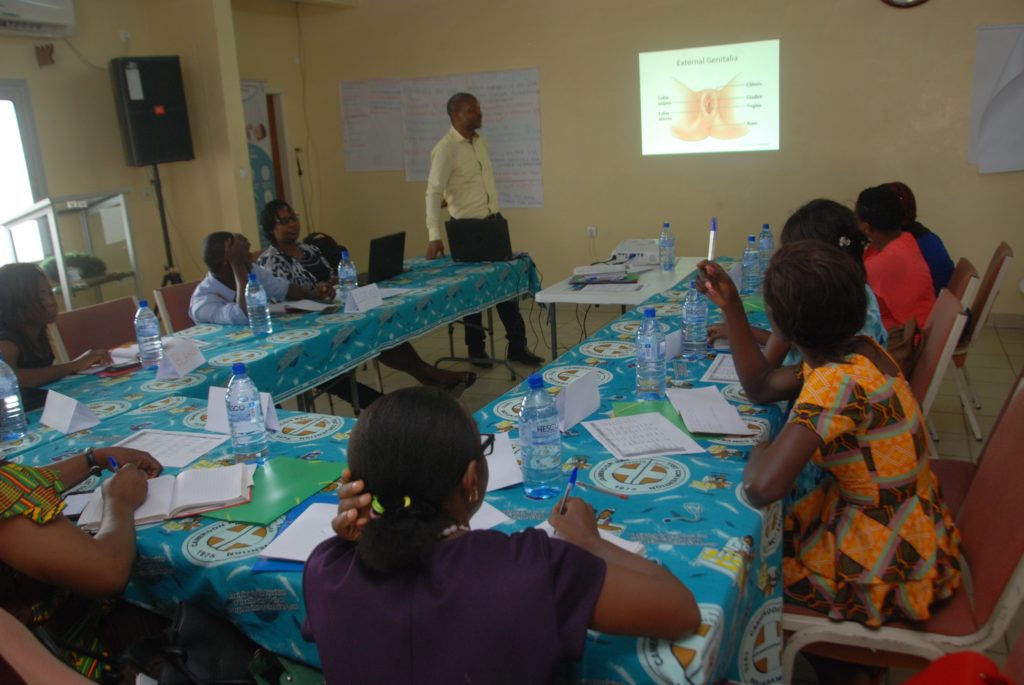
A mother-daughter cervical cancer prevention approach will be implemented in two rural communities in Cameroon, with mothers receiving cervical cancer screening services as their daughters simultaneously receive HPV vaccination.
Photo credit: Cameroon Baptist Convention Health Services

CBCHS’ cervical cancer prevention program is now the leading and most comprehensive cervical cancer prevention program in Cameroon and the Central Africa subregion. Since 2007, the program has screened an average of 8,000 women yearly for cervical cancer using visual inspection with acetic acid and Lugol’s iodine (VIA-VILI) enhanced by the use of digital imaging to take highly magnified images of the cervix, so that a woman and her provider can both see her cervix live at the same time. As of January 2020, the Women’s Health Program has integrated routine HPV testing as the primary screening test for women 30 years and older. Those women identified with precancerous lesions of the cervix are treated with cryotherapy/thermal ablation or Loop Electrosurgical Excision Procedure (LEEP). The program also conducted the first successful HPV vaccination demonstration project in Cameroon in 2010-2011.
Under the Cervical Cancer Grants Program, a mother-daughter cervical cancer prevention approach will be implemented in two rural communities in Cameroon, with mothers receiving cervical cancer screening services as their daughters simultaneously receive HPV vaccination.
Grounds for Health (GfH) is a US-based non-profit with a mission to prevent cervical cancer in the very rural communities where coffee is grown. Leveraging 25 years of experience, GfH provides on-the-ground implementation of screen-and-treat programs in Latin America and Africa with current programs in Ethiopia and Kenya. Local GfH staff train and support providers and community health promoters within the public health system in the secondary prevention of cervical cancer. Collaborative relationships are built with regional and national ministries of health, coffee cooperatives, global health organizations and funders, including the specialty coffee industry. GfH strives to be innovative in the use of technologies, in service delivery models and in training, and sustaining high-quality programs. Guided by a vision to build a bridge to globally inclusive health care, GfH treats women with dignity and respect while empowering them to live lives free of cervical cancer.
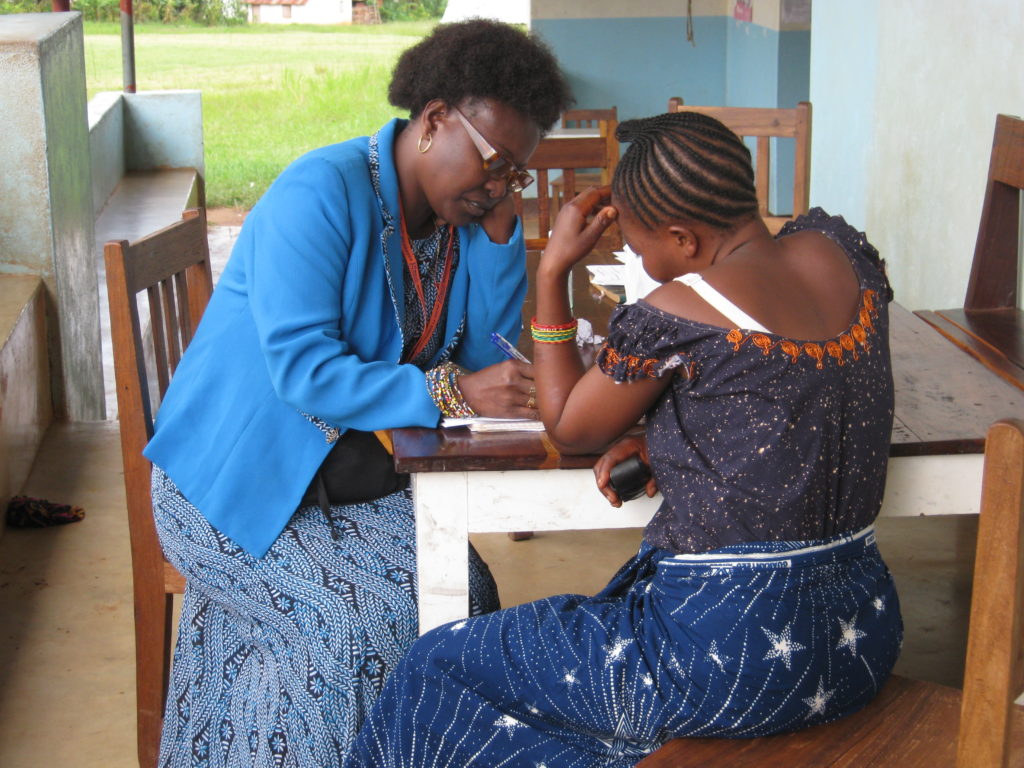
Grounds for Health will facilitate the introduction of HPV testing through self-sampling within their Kenyan program with the goal of increasing access, quality, reach, and patient satisfaction on the path toward the elimination of cervical cancer.
Photo credit: Grounds for Health

Under the Cervical Cancer Grants Program, Grounds for Health will facilitate the introduction of HPV testing through self-sampling within their Kenyan program with the goal of increasing access, quality, reach, and patient satisfaction on the path toward the elimination of cervical cancer. Success will be measured by ensuring that treatment rates remain above the World Health Organization (WHO) standard of 90%. As HPV testing is introduced across the program, a new digital platform will be adopted to track individual patients and samples via barcode and to provide overall program data. The goal of the project is to identify best practices in the implementation of HPV testing and treatment programs in rural areas, promoting local and global dissemination of effective program elements.
ROSE Foundation is a non-profit organization that is committed towards cervical cancer elimination in Malaysia. ROSE (Removing Obstacles to cervical ScrEening) uses human-centered and evidence-based solutions specifically designed for Malaysian women, by incorporating cultural and community-centric perspectives. Program ROSE is aligned with the WHO’s cervical cancer elimination goal and features three components – HPV self-sampling, HPV PCR testing, and a secure e-health platform to share results and provide for follow-up of women who require linkage to care. ROSE aims to empower women through self-care and delivers self-sampling cervical screening to women, while prioritizing the under-served and underprivileged communities.
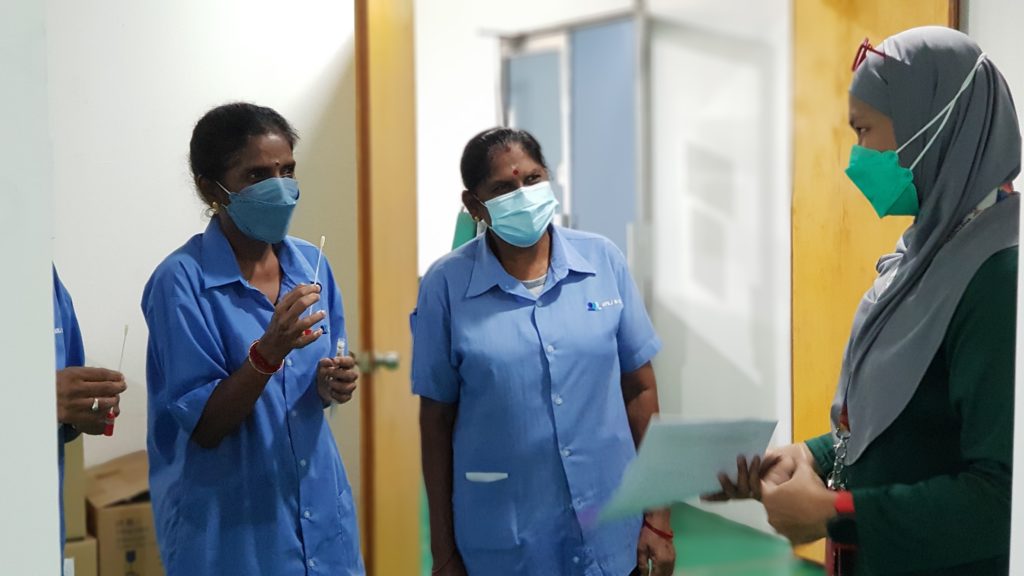
ROSE will work through its project “Community Engagement and Promotion of Shared Responsibility in Cervical Screening Programme” to change the landscape of cervical screening in Malaysia through the promotion of self-care and foster a network of collaboration and trust.
Photo credit: Program ROSE

As one of the TogetHER for Health Cervical Cancer Grants Program recipients, ROSE will work through its project “Community Engagement and Promotion of Shared Responsibility in Cervical Screening Programme” to change the landscape of cervical screening in Malaysia through the promotion of self-care and foster a network of collaboration and trust through engagement of community leaders and various stakeholders to encourage more women to participate in cervical cancer screening. The program plans to address communication issues in a multi-ethnic, multi-lingual and multi-cultural Malaysia, deepen understanding of barriers to facilitate their removal, and build a sustainable program in which cervical screening is normalized and all women will come out to screen.
Header Photo: “Ethiopia, Konso Market” by Achilli Family | Journeys is licensed under CC BY 2.0
